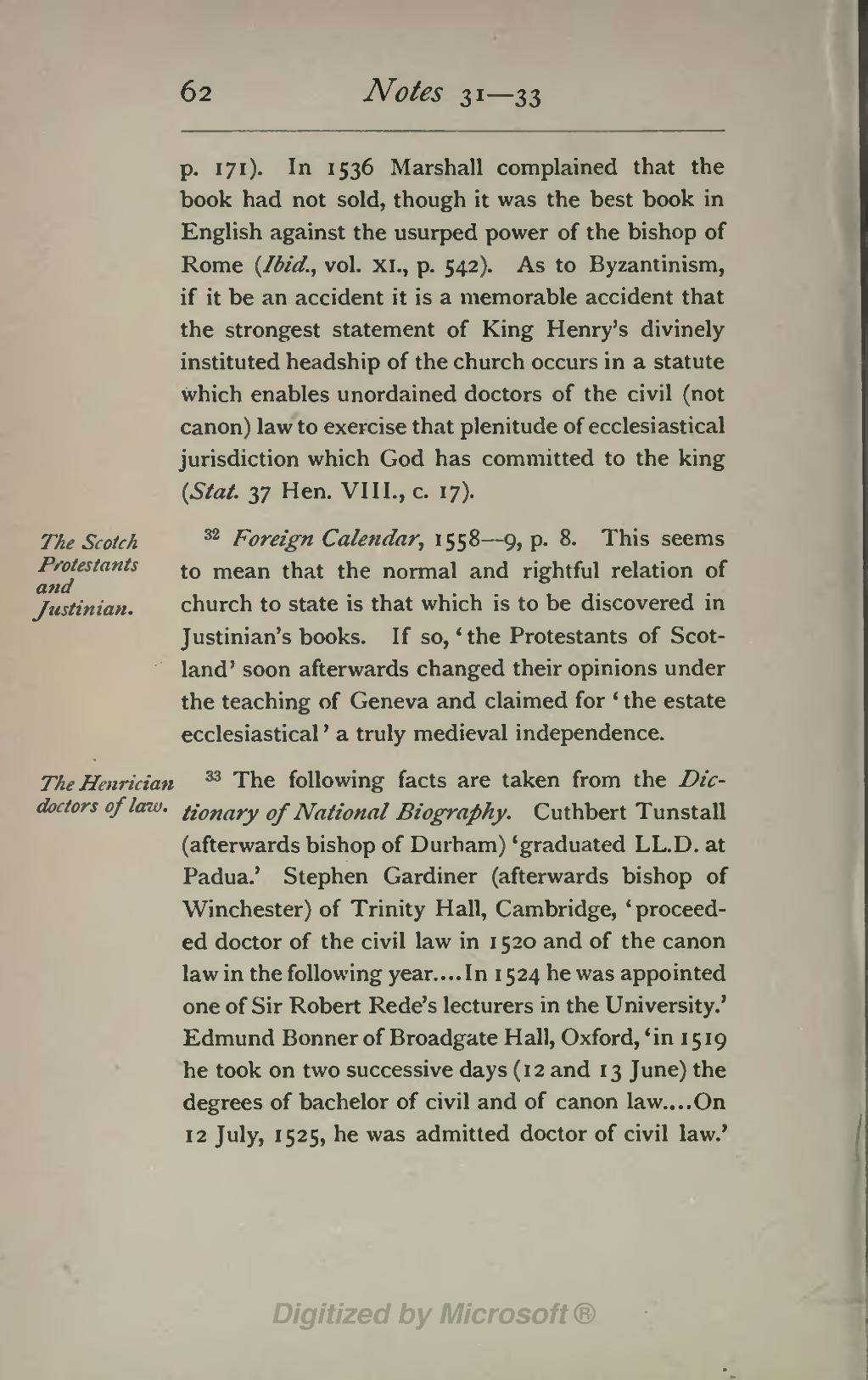p. 171). In 1536 Marshall complained that the book had not sold, though it was the best book in English against the usurped power of the bishop of Rome (Ibid., vol. XL, p. 542). As to Byzantinism, if it be an accident it is a memorable accident that the strongest statement of King Henry's divinely instituted headship of the church occurs in a statute which enables unordained doctors of the civil (not canon) law to exercise that plenitude of ecclesiastical jurisdiction which God has committed to the king (Stat. 37 Hen. VIII., c. 17).
The Scotch Protestants and Justinian.32 Foreign Calendar, 1558—9, p. 8. This seems to mean that the normal and rightful relation of church to state is that which is to be discovered in Justinian's books. If so, 'the Protestants of Scotland' soon afterwards changed their opinions under the teaching of Geneva and claimed for 'the estate ecclesiastical' a truly medieval independence.
The Henrician doctors of law.33 The following facts are taken from the Dictionary of National Biography. Cuthbert Tunstall (afterwards bishop of Durham) 'graduated LL.D. at Padua.' Stephen Gardiner (afterwards bishop of Winchester) of Trinity Hall, Cambridge, 'proceeded doctor of the civil law in 1520 and of the canon law in the following year.… In 1524 he was appointed one of Sir Robert Rede's lecturers in the University.' Edmund Bonner of Broadgate Hall, Oxford, 'in 1519 he took on two successive days (12 and 13 June) the degrees of bachelor of civil and of canon law.… On 12 July, 1525, he was admitted doctor of civil law.'

